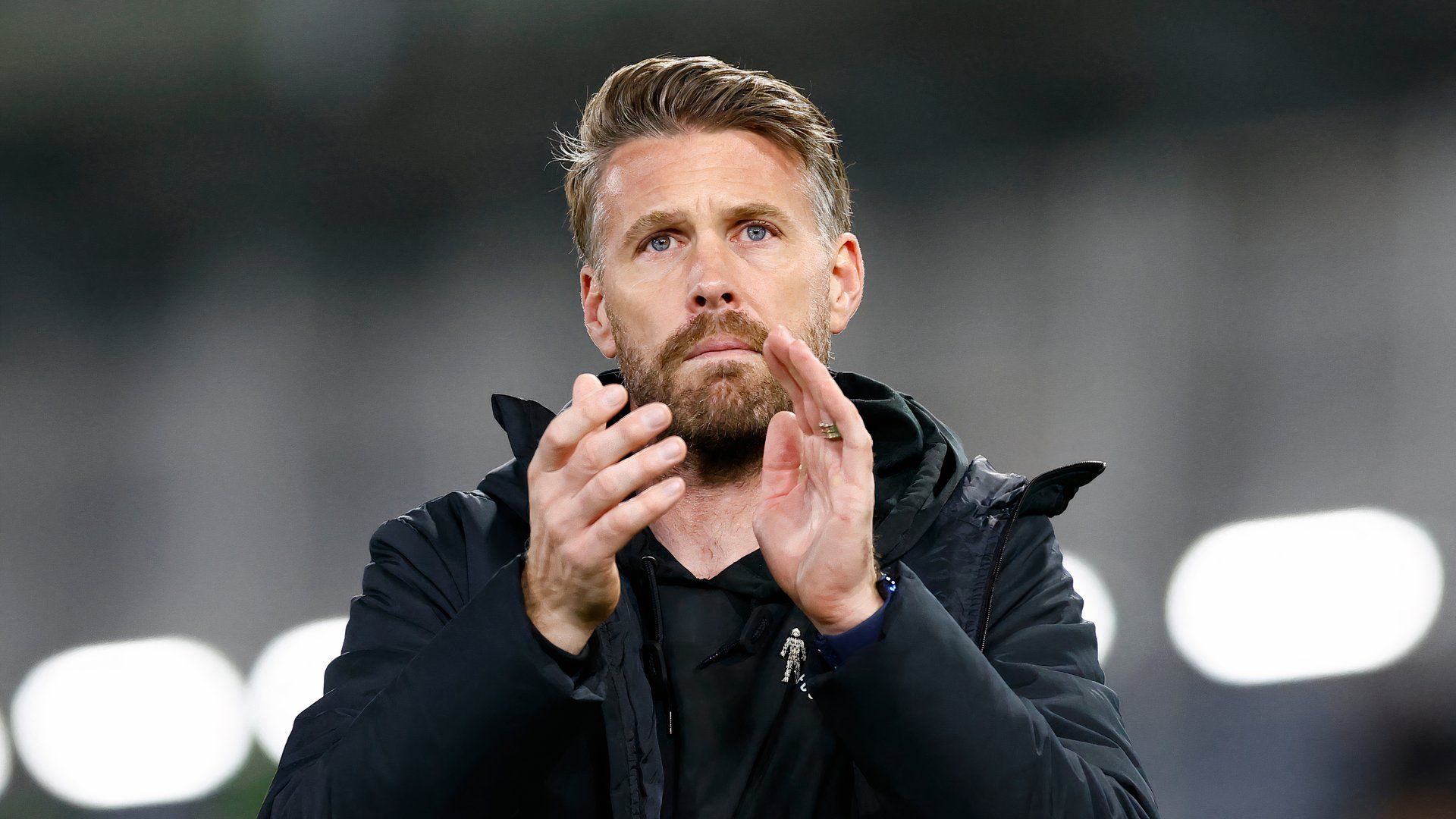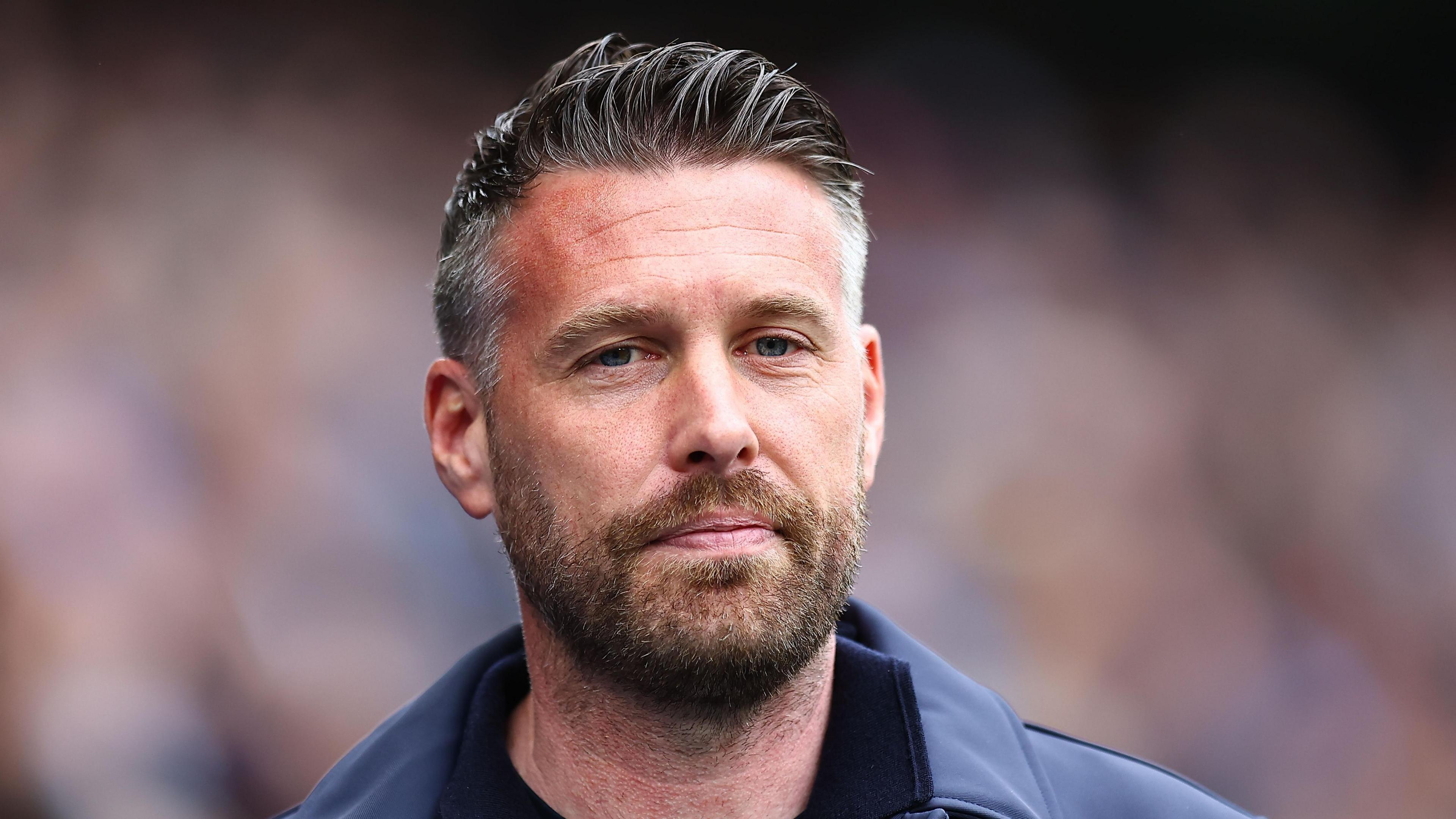Rob Edwards has quickly become one of the most exciting young managers in English football. Known for his tactical intelligence, motivational leadership, and player-first philosophy, Edwards has guided his teams with a mix of modern analytics and old-school grit. His journey from player to football manager reflects dedication, adaptability, and an unshakable love for the game.
Quick Bio
| Full Name | Robert Owen Edwards |
|---|---|
| Date of Birth | December 25, 1982 |
| Place of Birth | Telford, England |
| Nationality | Welsh (born in England) |
| Playing Position | Defender |
| Clubs Played For | Aston Villa, Wolverhampton Wanderers, Blackpool, Barnsley |
| Managerial Career | Forest Green Rovers, Watford, Luton Town |
| Current Role (2025) | Luton Town Manager |
| Notable Achievement | Promoted Luton Town to the Premier League |
| Coaching Style | Possession-based, high-press football |
| Inspirations | Pep Guardiola, Jürgen Klopp |
Early Life and Football Journey
Born in Telford, Shropshire, Rob Edwards was passionate about football from a young age. He joined the Aston Villa academy, where he developed under top coaches who recognized his defensive talent and leadership. His Welsh background later saw him represent the Wales national team, giving him experience at international level.
As a player, Edwards was known for his reading of the game, discipline, and tactical understanding—qualities that shaped his approach to management. Despite facing injuries that cut short his playing career, those challenges helped him grow mentally stronger and more analytical about football.
Transition from Player to Manager

After retiring, Rob Edwards moved naturally into coaching. His first significant experience came at Wolverhampton Wanderers, where he worked in the youth setup before managing the first team on an interim basis. His focus on player development, tactical education, and mental resilience laid the foundation for his managerial philosophy.
Edwards believed that success in football came not just from skill, but from understanding the psychology of players. He built his early reputation as a coach who could connect with footballers on a personal level, inspiring trust and belief. This emotional intelligence would become one of his defining strengths.
The Breakthrough at Forest Green Rovers
The big breakthrough for Rob Edwards came in 2021 when he took over Forest Green Rovers. The club, known for its sustainable approach to football, provided him the perfect environment to express his tactical ideas. Edwards implemented a high-pressing system, emphasizing quick transitions, ball retention, and teamwork.
Under his management, Forest Green Rovers played some of the most exciting football in League Two. His innovative tactics and positive dressing-room atmosphere helped the club win promotion to League One for the first time in its history. That success established him as one of the brightest young managers in English football.
A Short but Valuable Spell at Watford

In 2022, Rob Edwards took on a new challenge as Watford’s head coach, stepping into a club with high expectations and a fast-paced environment. Although his time there was brief, it was a valuable experience that taught him about handling pressure, managing elite players, and adapting to Premier League demands.
Even during that short spell, Edwards showcased his commitment to attacking football and his belief in player freedom. When his tenure ended prematurely, he responded with professionalism and humility, earning respect across the football community. Instead of being discouraged, he saw the moment as a stepping stone toward his next great opportunity.
The Luton Town Revolution
In late 2022, Rob Edwards was appointed manager of Luton Town—a decision that proved transformative for both him and the club. Luton had a strong foundation, but Edwards injected new belief and tactical clarity. His side became known for their defensive solidity, fast transitions, and team unity.
Within months, Luton Town climbed the Championship table, playing with confidence and purpose. The culmination of this journey was the incredible promotion to the Premier League, achieved through a dramatic playoff victory at Wembley. For both Edwards and Luton, it was a fairytale moment that highlighted his exceptional leadership.
Tactical Philosophy and Playing Style
One of Rob Edwards’ greatest strengths as a football manager is his tactical flexibility. His teams are built on principles of organization, pressing, and adaptability. He prefers a 3-5-2 or 3-4-3 formation that allows full-backs to attack while maintaining defensive balance.
Edwards emphasizes intelligent pressing rather than just running after the ball. Players are coached to close down space, anticipate movement, and create turnovers in dangerous areas. This tactical discipline is complemented by a strong focus on possession football, ensuring that his teams control the rhythm of matches.
Man-Management and Leadership Qualities
Beyond tactics, Rob Edwards stands out for his empathy and communication skills. Players often describe him as approachable and inspiring. He focuses on building a positive atmosphere in training, encouraging players to express themselves while maintaining high standards.
His leadership style combines emotional intelligence with clear expectations. Whether it’s motivating a young talent or guiding an experienced veteran, Edwards knows how to get the best out of his squad. His ability to connect personally with players is one of the reasons for his success at every club he’s managed.
Use of Modern Analytics and Technology
In the modern game, Rob Edwards embraces the use of data analytics, video analysis, and sports science to improve performance. At Luton Town, he introduced new training methods and tactical tools that helped players understand their roles better.
This analytical approach allows Edwards to make informed decisions about formations, substitutions, and opposition analysis. By blending traditional football wisdom with modern technology, he stays ahead of the curve in the ever-evolving world of football management.
Building Team Culture and Identity
For Rob Edwards, football is not only about tactics but also about culture. At every club he’s managed, he has created a sense of belonging and purpose. Players buy into his vision because they feel valued and part of something bigger.
This culture of togetherness and accountability has been a hallmark of his teams. Whether it’s during a tough defeat or a crucial playoff match, Edwards ensures his squad remains united, disciplined, and motivated. It’s this culture that turned Luton Town into one of the hardest-working teams in English football.
Challenges and Setbacks
Every manager faces setbacks, and Rob Edwards is no exception. Injuries, financial limits, and media pressure have all tested his resilience. However, his calm and reflective nature allows him to learn from challenges rather than be defeated by them.
His time at Watford, for example, taught him the importance of patience and adaptability. Instead of losing confidence, he grew stronger and more determined to succeed. That mental toughness is a defining feature of his career and has earned him respect from both fans and peers.
Achievements and Milestones
The highlight of Rob Edwards’ managerial journey so far is undoubtedly leading Luton Town to the Premier League. It was a historic achievement for a club that had been outside the top flight for over 30 years. His success didn’t just come from tactics—it was built on belief, team spirit, and an unwavering drive to prove doubters wrong.
He was also named EFL Championship Manager of the Season, a testament to his growing reputation in football. These accomplishments underline his ability to make a significant impact wherever he goes.
Rob Edwards’ Influence on Future Managers
As one of the leading figures among a new generation of English managers, Rob Edwards is inspiring others to take a holistic approach to football management. His blend of tactical detail, emotional awareness, and modern methods represents the direction football is heading.
Young coaches now study his journey as an example of how patience, humility, and innovation can lead to success. Edwards shows that great management is not about fame—it’s about improving players and building sustainable success.
Future Prospects and Legacy
Looking ahead, the future seems bright for Rob Edwards. His achievements with Luton Town have proven his credentials, and many believe he could manage at an even higher level in the coming years. With his grounded personality and forward-thinking mindset, he is likely to remain a key figure in English football for a long time.
If his trajectory continues, Edwards could soon be mentioned alongside the top British managers. His story is proof that hard work, intelligence, and humility can lead to greatness in the world’s most competitive sport.
FAQs
Who is Rob Edwards?
Rob Edwards is a Welsh football manager and former player, currently managing Luton Town in the Premier League.
What is Rob Edwards known for?
He’s known for his tactical intelligence, high-pressing style, and strong man-management skills.
Which clubs has Rob Edwards managed?
He has managed Forest Green Rovers, Watford, and Luton Town.
What is Rob Edwards’ biggest achievement?
Leading Luton Town to promotion to the Premier League in 2023.
What is Rob Edwards’ coaching style?
His teams play high-press, possession-based football focused on teamwork and adaptability.
For More Latest Update oneuppress

